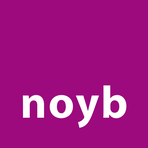Mozilla's Privacy Dilemma: A Browser's Battle for Trust
September 27, 2024, 9:55 am

Location: United States, California, Mountain View
Employees: 1001-5000
Founded date: 2005
Total raised: $300K
In the digital age, privacy is the new gold. Everyone wants it, but few know how to protect it. Mozilla, the maker of Firefox, finds itself in hot water. A complaint has been filed against it by NOYB, a privacy advocacy group. The charge? Tracking users without their consent. This isn't just a minor hiccup; it's a significant blow to Mozilla's reputation.
NOYB, short for None Of Your Business, has taken aim at Mozilla's so-called "privacy preserving attribution" feature. This tool, designed to help websites measure ad performance, has instead turned Firefox into a tracking mechanism. Users were not informed. They were left in the dark, like a ship lost at sea. This lack of transparency is what has ignited the flames of controversy.
The complaint was lodged with the Austrian data protection authority. NOYB argues that Mozilla's feature violates EU privacy laws. The group believes that users should have a say in how their data is used. They should not be treated as passive vessels, subject to the whims of tech companies. Mozilla's defense? They claim the feature is a non-invasive alternative to traditional tracking methods. They argue it helps websites without compromising individual privacy. But is that enough?
The irony is palpable. Mozilla has long been a champion of user privacy. Once, it was the darling of the internet, a beacon of hope in a world dominated by data-hungry giants like Google and Facebook. Now, it finds itself in a precarious position. Its market share has dwindled to single digits. Users are flocking to competitors like Chrome and Safari. Trust, once a cornerstone of Mozilla's identity, is now in jeopardy.
The crux of the issue lies in user consent. NOYB contends that Firefox's tracking feature is enabled by default. This means users are unwittingly part of a data collection scheme. It’s akin to being signed up for a newsletter without your knowledge. Felix Mikolasch, a data protection lawyer at NOYB, has voiced his concerns. He argues that users should have the option to opt-in, rather than being thrust into a system they didn’t agree to.
This complaint is not an isolated incident. NOYB has a history of targeting big tech companies. In June, they filed a similar complaint against Google for tracking Chrome users. Their mission is clear: hold tech giants accountable. They want transparency and user control. They want to ensure that privacy is not just a buzzword, but a reality.
Mozilla's response to the complaint is crucial. They must navigate these turbulent waters carefully. The company has a legacy to uphold. It must reassure users that their data is safe. It must communicate clearly and effectively. Transparency is key. If users feel betrayed, they will abandon ship.
The stakes are high. Mozilla's reputation hangs in the balance. The company must act swiftly. They need to inform users about their data practices. They must switch to an opt-in system. This is not just about compliance; it’s about rebuilding trust.
In a world where data breaches are common, users are more aware than ever. They want control over their information. They want to feel secure. Mozilla must remember this. They must listen to their users.
The tech landscape is shifting. Privacy is no longer an afterthought; it’s a priority. Companies that fail to adapt will be left behind. Mozilla has the tools to lead the charge. They have the expertise. They have the community. But they must also have the will.
As the complaint unfolds, the outcome remains uncertain. Will Mozilla rise to the occasion? Will they reclaim their status as a privacy champion? Or will they falter, losing the trust of millions?
The digital world is watching. Users are waiting. Mozilla stands at a crossroads. The path they choose will define their future. It’s a moment of reckoning. The question is: will they seize the opportunity to restore their legacy, or will they become just another cautionary tale in the annals of tech history?
In the end, it’s about more than just a browser. It’s about the principles of privacy and trust. It’s about empowering users. Mozilla has a chance to lead by example. They can show that privacy is not just a feature, but a fundamental right. The choice is theirs. The clock is ticking.
NOYB, short for None Of Your Business, has taken aim at Mozilla's so-called "privacy preserving attribution" feature. This tool, designed to help websites measure ad performance, has instead turned Firefox into a tracking mechanism. Users were not informed. They were left in the dark, like a ship lost at sea. This lack of transparency is what has ignited the flames of controversy.
The complaint was lodged with the Austrian data protection authority. NOYB argues that Mozilla's feature violates EU privacy laws. The group believes that users should have a say in how their data is used. They should not be treated as passive vessels, subject to the whims of tech companies. Mozilla's defense? They claim the feature is a non-invasive alternative to traditional tracking methods. They argue it helps websites without compromising individual privacy. But is that enough?
The irony is palpable. Mozilla has long been a champion of user privacy. Once, it was the darling of the internet, a beacon of hope in a world dominated by data-hungry giants like Google and Facebook. Now, it finds itself in a precarious position. Its market share has dwindled to single digits. Users are flocking to competitors like Chrome and Safari. Trust, once a cornerstone of Mozilla's identity, is now in jeopardy.
The crux of the issue lies in user consent. NOYB contends that Firefox's tracking feature is enabled by default. This means users are unwittingly part of a data collection scheme. It’s akin to being signed up for a newsletter without your knowledge. Felix Mikolasch, a data protection lawyer at NOYB, has voiced his concerns. He argues that users should have the option to opt-in, rather than being thrust into a system they didn’t agree to.
This complaint is not an isolated incident. NOYB has a history of targeting big tech companies. In June, they filed a similar complaint against Google for tracking Chrome users. Their mission is clear: hold tech giants accountable. They want transparency and user control. They want to ensure that privacy is not just a buzzword, but a reality.
Mozilla's response to the complaint is crucial. They must navigate these turbulent waters carefully. The company has a legacy to uphold. It must reassure users that their data is safe. It must communicate clearly and effectively. Transparency is key. If users feel betrayed, they will abandon ship.
The stakes are high. Mozilla's reputation hangs in the balance. The company must act swiftly. They need to inform users about their data practices. They must switch to an opt-in system. This is not just about compliance; it’s about rebuilding trust.
In a world where data breaches are common, users are more aware than ever. They want control over their information. They want to feel secure. Mozilla must remember this. They must listen to their users.
The tech landscape is shifting. Privacy is no longer an afterthought; it’s a priority. Companies that fail to adapt will be left behind. Mozilla has the tools to lead the charge. They have the expertise. They have the community. But they must also have the will.
As the complaint unfolds, the outcome remains uncertain. Will Mozilla rise to the occasion? Will they reclaim their status as a privacy champion? Or will they falter, losing the trust of millions?
The digital world is watching. Users are waiting. Mozilla stands at a crossroads. The path they choose will define their future. It’s a moment of reckoning. The question is: will they seize the opportunity to restore their legacy, or will they become just another cautionary tale in the annals of tech history?
In the end, it’s about more than just a browser. It’s about the principles of privacy and trust. It’s about empowering users. Mozilla has a chance to lead by example. They can show that privacy is not just a feature, but a fundamental right. The choice is theirs. The clock is ticking.
